Tuesday, November 4th
| 10:00 a.m–12:00 p.m. | "How Important is Mathematics in Today’s World?" Mike Sequeira and Don Gallagher, Ford 122
Although most often hidden from view, mathematics underpins much of today’s technology. To try and get a sense of that statement we will take a quick look at how computers compute; how data encryption works; and if time, how you can get all those pictures on your digital camera card. And to begin to understand the use and abuse of statistics in today’s news we will also briefly explore the mathematics of probability and whether or not your vote on Measure 90 in today’s election will likely result in a fair election process for Oregon. The story told will include historical and modern vignettes, theoretical and applied problems, everyday and obscure anecdotes. There may even be a tall tale or two! Sequeira and Gallagher are retired professors of mathematics at Central Oregon Community College in Bend. |
| 1:00–2:00 p.m. | "Veracity - A Dance Concert," Willamette Theater presentation [Deborah Ehlers], Pelton Theatre A new era of dance at Willamette has begun. This season, our production will ascend to a level of personal honesty that will touch and inspire. The concert will include unique student choreography, new faculty works, and collaborations with other artists to produce a body of work that will portray our continuing commitment to integrity. Artistic Director Jessi Fouts and students will present to ICL. |
| 2:00–3:00 p.m. | "The Story of Human Language Video Series: Language Mixture–Grammar," Prof. John McWhorter [Harvey Reynolds], Ford 122
Scope: Languages also mix their grammars. Yiddish is basically a dialect of German, but it has not only many words but even grammatical features from Slavic languages, such as Polish. Indian Indo-European languages, such as Hindi, place their verbs at the end of sentences, because the other language family of India has the same feature. In some cases, languages mix so intimately that they become new ones, such as Media Lengua in Ecuador, which uses Spanish words with endings and word order from the local Indian language Quechua. There are no languages without at least some signs of grammar mixture. The presentation will be hosted by Harvey Reynolds. |
Thursday, November 6th
| 10:00 a.m.–12:00 p.m. | "Art Potpourri," Host Sharon Wright, Ford 122 ICL members present short topics on Art. Presenters include: • Phil Caudill • Peter Ronai • Jeanette Flaming • Mark Kasoff • Ron Nichols Sharon Wright hosts. |
| 1:00–3:00 p.m. | "The Lost Way: How Two Forgotten Gospels are Rewriting the Story of Christian Origins," Stephen Patterson [Judy Heltzel], Ford 122 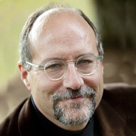
In this rigorously researched and thoughtful study, a leading Jesus Seminar scholar reveals the dramatic story behind the modern discovery of the earliest gospels, accounts that do not portray Jesus exclusively as a martyr but recover a lost ancient Christian tradition centered on Jesus as a teacher of wisdom. The church has long advocated the Pauline view of Jesus as deity and martyr, emphasizing his death and resurrection. But another tradition also thrived from Christianity’s beginnings, one that portrayed Jesus as a teacher of wisdom. In The Lost Way, Stephen Patterson, a leading New Testament scholar and former head of the Jesus Seminar, explores this lost ancient tradition and its significance to the faith. Patterson explains how scholars have uncovered a Gospel called "Q," that preceded at least three of those in the Bible. He painstakingly demonstrates how historical evidence points to the existence of this common source in addition to Mark—recognized as the earliest Gospel—that both Matthew and Luke used to write their accounts. "Q" contained a collection of Jesus’s teachings without any narrative content and without accounts of the passion, though being the earliest version shared among his first followers—scripture that embodies a very different orientation to the Christian faith. Patterson also explores other examples of this wisdom tradition, from the discovery of the Gospel of Thomas; to the emergence of Apollos, a likely teacher of Christian wisdom; to the main authority of the church in Jerusalem, Jesus’s brother James. The Lost Way offers a profound new portrait of Jesus—one who can show us a new way to live. Stephen J. Patterson came to Willamette in 2010 as the George H. Atkinson Professor of Religious and Ethical Studies. Prior to his arrival here he was for more than 20 years Professor of New Testament at Eden Theological Seminary in St. Louis. Dr. Patterson is an historian of religion specializing in the beginnings of Christianity. His research and writing have focused on the Gospel of Thomas, "Q," and various aspects of the historical study of Jesus. Among his books are Beyond the Passion: Rethinking the Death and Life of Jesus (Fortress, 2004), The God of Jesus: The Historical Jesus and the Search for Meaning (Trinity, 1998) and The Gospel of Thomas and Jesus (Polebridge, 1993), as well as the co-authored volumes, The Q-Thomas Reader (Polebridge, 1990), The Search for Jesus (The Smithsonian Institution and the Biblical Archaeology Society, 1994), The Fifth Gospel: The Gospel of Thomas Comes of Age (Trinity, 1998), and The Apocalyptic Jesus: A Debate (Polebridge, 2001). His many essays and reviews have appeared in The Harvard Theological Review, The Journal of Biblical Literature, The Journal of Religion, the Journal of the American Academy of Religion, and Theology Today, among other publications both professional and popular. You will occasionally see Dr. Patterson in various documentaries dealing with biblical subject matter airing on the Discovery Channel and National Geographic. He holds membership in the Society of Biblical Literature and the Studiorum Novi Testamenti Societas. He is also a Fellow of the Jesus Seminar and leads the Jesus Seminar on Christian Origins, a group of 150 scholars of early Christianity dedicated to disseminating biblical scholarship to the general public. Dr. Patterson is currently at work on a commentary on the Gospel of Thomas for the series Hermeneia (Fortress Press). |
Tuesday, November 11th
| 10:00 a.m.–12:00 p.m. | Great Decisions: Energy Independence [Jeanette Flaming], Ford 122
Learn more about energy independence. George Adkins will be our presenter. |
| 1:00–3:00 p.m. | "Here Bullet" Les Green [Solveig Holmquist], ***Cone Chapel***
He was recently heard on the Premiere of Robert Kyr's A Time for Life with Cappella Romana, as Don Jose in Opera Theater of Oregon's Carmen, as the Evangelist in Heinrich Schutz's St. John Passion with Portland Vocal Consort and as Alfredo in Opera Theater of Oregon's La Traviata. Green originally hails from the Midwest where he received a Bachelor of Music in Vocal Performance from Ball State University. He resides in Vancouver Washington with his wife, daughter and two beagles. He maintains a thriving private voice studio in Vancouver and teaches voice at Willamette University as well as working with many area high schools and as a clinician and adjudicator. |
Thursday, November 13th
| 10:00–11:00 a.m. | "World War I: The Western Front," Ken Ash, Ford 122
Following the outbreak of World War I in 1914, the German Army opened the Western Front by first invading Luxembourg and Belgium, then gaining military control of |
| 11:00 a.m.–12:00 p.m. | "World War I: The Eastern Front," Bob Muir, Ford 122
During World War I, the Eastern Front (sometimes called the "Second Fatherland War" in Russian sources) was a theatre of operations |
| 1:00–2:00 p.m. | World War I: Middle Eastern Theater," Don Gallagher, Ford 122
The Middle Eastern theatre of World War I was the scene of action between 29 October 1914 and 30 October 1918. Click for a PDF file of Don's presentation (26 MB file–broadband connection required). |
| 2:00–3:00 p.m. | "World War I: Economics," Mark Kasoff, Ford 122
Our presenter is ICL member Mark Kasoff. The Economic history of World War I Click for a PDF file of Mark's presentation (8 MB file–broadband connection required). |
Tuesday, November 18th
| 10:00 - 11:00 a.m. | "How to Listen to and Understand Great Music, Video Lecture: The French Revolution and an Introduction to Beethoven," Dr. Robert Greenberg [Solveig Holmquist], Ford 122
|
| 11:00 a.m. - 12:00 p.m. | "Music Potpourri," Solveig Holmquist , Ford 122 ICL members Carolyn Woodman, Pete Byeman, and Priscilla Hibbard will share their favorite musical selections. They will be introduced by Solveig Holmquist. |
| 1:00–2:00 p.m. | ICL Favorite Books [Erin Hanni], Ford 122 Description TBA |
| 2:00–3:00 p.m. | Contemporary Literature Discussion: "The Boys in the Boat," Bea Epperson, Ford 122
The following additional information has been provided by Dave MacMillan: Below is a link to the PowerPoint used for this presentation of “The Boys in the Boat.” There are photos and links to related videos in the slides, including the 8 man crew race at the 1936 Olympics in Germany. There was a lot that I wanted to show during the presentation, but did not have time, so please check this out at your leisure. |
Thursday, November 20th
| 10:00 a.m.-12:00 p.m. | "Journeying Towards Water Justice," Susan L. Smith [Judy Heltzel], Ford 122
Education: |
| 1:00–3:00 p.m. | Great Decisions: Food and Climate, Joe Bowersox [Jeanette Flaming], Ford 122
Learn more about food and climate reform.
|
Tuesday, November 25th
THANKSGIVING BREAK, NO CLASSES |
Thursday, November 27th
THANKSGIVING BREAK, NO CLASSES |


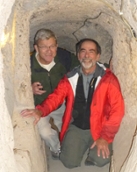 Mike Sequeira of Bend and ICL member Don Gallagher will return to ICL to share some thoughts about how mathematics helps us make some sense out of today’s explosion of information in most areas of human activity.
Mike Sequeira of Bend and ICL member Don Gallagher will return to ICL to share some thoughts about how mathematics helps us make some sense out of today’s explosion of information in most areas of human activity.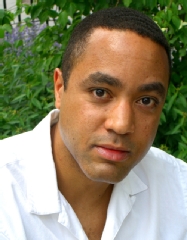
 Energy independence, by taking the bargaining chip of oil dependence off the table, would be good for American foreign policy. But the very technological advances that make independence possible have created a dilemma for lawmakers. In a government with fixed resources, should the U.S. encourage more traditional fuel production or invest in the young technology of renewable resources?
Energy independence, by taking the bargaining chip of oil dependence off the table, would be good for American foreign policy. But the very technological advances that make independence possible have created a dilemma for lawmakers. In a government with fixed resources, should the U.S. encourage more traditional fuel production or invest in the young technology of renewable resources? Leslie W. Green, Tenor, is in high demand as a soloist in the Northwest. Often praised for his seemingly effortless, expressive singing, Mr. Green performs a wide variety of literature ranging from Bach arias to contemporary art songs. Green has appeared throughout the Northwest with many of the finest ensembles and events including Oregon Repertory Singers, Portland Symphonic Choir, Annas Bay Music Festival, Mount Angel Abbey, Willamette Master Chorus, Eclectic Orange Festival in Orange County California, Rose City Chamber Orchestra, Cascade Music Festival, Northwest Mahler Festival, Columbia Chorale and numerous Church concerts and music series.
Leslie W. Green, Tenor, is in high demand as a soloist in the Northwest. Often praised for his seemingly effortless, expressive singing, Mr. Green performs a wide variety of literature ranging from Bach arias to contemporary art songs. Green has appeared throughout the Northwest with many of the finest ensembles and events including Oregon Repertory Singers, Portland Symphonic Choir, Annas Bay Music Festival, Mount Angel Abbey, Willamette Master Chorus, Eclectic Orange Festival in Orange County California, Rose City Chamber Orchestra, Cascade Music Festival, Northwest Mahler Festival, Columbia Chorale and numerous Church concerts and music series.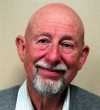 Our presenter is ICL member Ken Ash.
Our presenter is ICL member Ken Ash.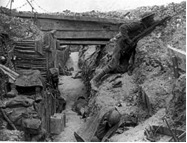 important industrial regions in France. The tide of the advance was dramatically turned with the Battle of the Marne. Following the race to the sea, both sides dug in along a meandering line of fortified trenches, stretching from the North Sea to the Swiss frontier with France. This line remained essentially unchanged for most of the war.
important industrial regions in France. The tide of the advance was dramatically turned with the Battle of the Marne. Following the race to the sea, both sides dug in along a meandering line of fortified trenches, stretching from the North Sea to the Swiss frontier with France. This line remained essentially unchanged for most of the war.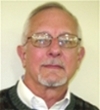 Our presenter is ICL member Bob Muir.
Our presenter is ICL member Bob Muir.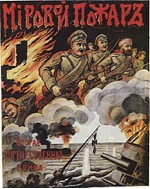 that encompassed at its greatest extent the entire frontier between the Russian Empire and Romania on one side and the Austro-Hungarian Empire, Bulgaria and Germany on the other. It stretched from the Baltic Sea in the north to the Black Sea in the south, included most of Eastern Europe and stretched deep into Central Europe as well.
that encompassed at its greatest extent the entire frontier between the Russian Empire and Romania on one side and the Austro-Hungarian Empire, Bulgaria and Germany on the other. It stretched from the Baltic Sea in the north to the Black Sea in the south, included most of Eastern Europe and stretched deep into Central Europe as well.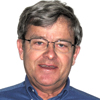 Our presenter is ICL member Don Gallagher.
Our presenter is ICL member Don Gallagher.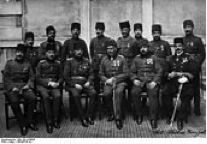 The combatants were on the one hand, the Ottoman Empire (including Kurds, Circassians, Turcomans and some Arab, Berber and Iranian tribes), with some assistance from the other Central Powers, and on the other hand, the British and the Russians, (with the aid of the Armenians, Assyrians, Jews and the majority of Arabs) among the Allies of World War I. There were five main campaigns: the Sinai and Palestine Campaign, the Mesopotamian Campaign, the Caucasus Campaign, the Persian Campaign, and the Gallipoli Campaign. There were the minor North African Campaign, the Arab Campaign, and South Arabia Campaign.
The combatants were on the one hand, the Ottoman Empire (including Kurds, Circassians, Turcomans and some Arab, Berber and Iranian tribes), with some assistance from the other Central Powers, and on the other hand, the British and the Russians, (with the aid of the Armenians, Assyrians, Jews and the majority of Arabs) among the Allies of World War I. There were five main campaigns: the Sinai and Palestine Campaign, the Mesopotamian Campaign, the Caucasus Campaign, the Persian Campaign, and the Gallipoli Campaign. There were the minor North African Campaign, the Arab Campaign, and South Arabia Campaign.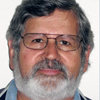
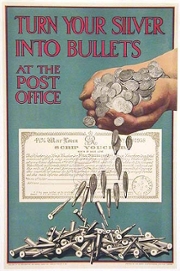 covers the methods used by the major nations to pay the costs of the First World War (1914–1918), as well as related postwar issues such as war debts and reparations. It also covers the economic mobilization of labor, industry and agriculture. It deals with economic warfare such as the blockade of Germany, and with some issues closely related to the economy, such as military issues of transportation.
covers the methods used by the major nations to pay the costs of the First World War (1914–1918), as well as related postwar issues such as war debts and reparations. It also covers the economic mobilization of labor, industry and agriculture. It deals with economic warfare such as the blockade of Germany, and with some issues closely related to the economy, such as military issues of transportation.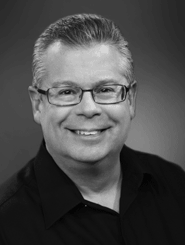 Haydn's music reflects the Classical-era characteristics of balance, accessibility, tunefulness, rhythmic continuity, and artistic restraint. Beethoven's music, on the other hand, is unrestrained, unpredictable, self-expressive, and self-referential. Beethoven's music reflects the revolutionary times in which he lived, a344 time that saw the French Revolution and the rise of the self-made hero Napoleon Bonaparte. Beethoven's music also manifests his own unique personality and experience, influenced to a large degree by the grimness of his childhood and his devastating hearing disability.
Haydn's music reflects the Classical-era characteristics of balance, accessibility, tunefulness, rhythmic continuity, and artistic restraint. Beethoven's music, on the other hand, is unrestrained, unpredictable, self-expressive, and self-referential. Beethoven's music reflects the revolutionary times in which he lived, a344 time that saw the French Revolution and the rise of the self-made hero Napoleon Bonaparte. Beethoven's music also manifests his own unique personality and experience, influenced to a large degree by the grimness of his childhood and his devastating hearing disability.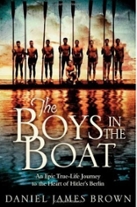 The book selection for the fall term will be: The Boys in the Boat by Daniel James Brown. This riveting tale of beating the odds (and the Germans) at the 1936 Olympics is a rousing story of American can-do-ism. It’s also a portrait of the nine boys who first rowed together for the University of Washington, and of the one in particular who made the sport his family and his home.
The book selection for the fall term will be: The Boys in the Boat by Daniel James Brown. This riveting tale of beating the odds (and the Germans) at the 1936 Olympics is a rousing story of American can-do-ism. It’s also a portrait of the nine boys who first rowed together for the University of Washington, and of the one in particular who made the sport his family and his home.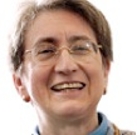 Professor Susan Smith is Willamette University Professor of Law and Director of the Certificate Program in Law & Government. Professor Smith brings a wealth of practical experience to teaching, because she has spent more than 20 years litigating environmental and natural resources issues. She first served as an associate with Holland and Hart as an environmental and natural resources litigator. She then became a senior trial attorney and Assistant of the Environmental Defense Section, Environment and Natural Resources Division, U.S. Department of Justice, where she received several awards for distinguished service. Finally, since joining the Willamette faculty in 1989, Professor Smith has served as pro bono counsel for various environmental and community groups. Currently, she directs the school's
Professor Susan Smith is Willamette University Professor of Law and Director of the Certificate Program in Law & Government. Professor Smith brings a wealth of practical experience to teaching, because she has spent more than 20 years litigating environmental and natural resources issues. She first served as an associate with Holland and Hart as an environmental and natural resources litigator. She then became a senior trial attorney and Assistant of the Environmental Defense Section, Environment and Natural Resources Division, U.S. Department of Justice, where she received several awards for distinguished service. Finally, since joining the Willamette faculty in 1989, Professor Smith has served as pro bono counsel for various environmental and community groups. Currently, she directs the school's  Even as a sixth of the world’s population suffers from chronic hunger, a changing climate threatens to wreak havoc on already insecure and vulnerable populations. As food and water become scarce and once fertile land becomes barren, the U.S. find itself faced with new challenges in securing the globe. The U.S. is getting ready, but can it lead the way to climate reform?
Even as a sixth of the world’s population suffers from chronic hunger, a changing climate threatens to wreak havoc on already insecure and vulnerable populations. As food and water become scarce and once fertile land becomes barren, the U.S. find itself faced with new challenges in securing the globe. The U.S. is getting ready, but can it lead the way to climate reform?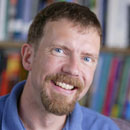 Joe Bowersox, Dempsey Professor of Environmental Policy, Department of Environmental and Earth Science, and Director, Center for Sustainable Communities, will be our presenter.
Joe Bowersox, Dempsey Professor of Environmental Policy, Department of Environmental and Earth Science, and Director, Center for Sustainable Communities, will be our presenter.